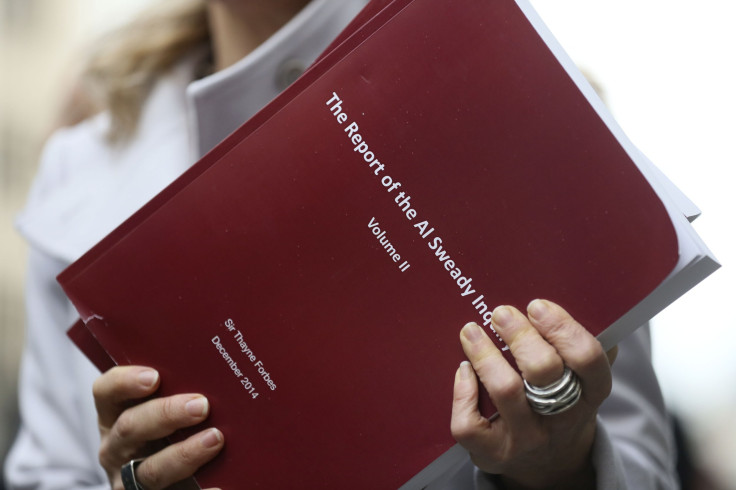Al-Sweady Inquiry: British Soldiers Mistreated Iraqi Detainees, But Allegations Of Murder, Torture Are 'Baseless'

The United Kingdom’s Al-Sweady inquiry into the actions of nine British soldiers who participated in a 2004 battle in Iraq found detainees were mistreated after the conflict. However, the judge-led review determined that allegations that the soldiers tortured, mutilated and murdered the Iraqi detainees were without merit, former High Court judge Sir Thayne Forbes said Wednesday.
“Very many of those baseless allegations were the product of deliberate and calculated lies on the part of those who made them and who then gave evidence to support and perpetuate them,” he said, according to the Telegraph. “Other false allegations were the result of inappropriate and reckless speculation on the part of the witnesses.”
The Al-Sweady inquiry examined the actions of nine British soldiers during the Battle of Danny Boy, when Iraqi insurgents ambushed members of the 1st Battalion Princess of Wales’ Regiment near a British checkpoint on May 14, 2004, with the Brits prevailing and taking about 20 prisoners. The inquiry, which began in 2009, resulted in a 1,250-page report on the incident and cost taxpayers £31 million, the BBC reports. Investigators found that soldiers used harsh or dishonorable tactics such as food and sleep deprivation, posing for photos with incapacitated detainees, and aggressive interrogation techniques at Camp Abu Naji in Iraq, the Associated Press reports.
However, the British soldiers’ offenses “were relatively minor when compared to the original very serious allegations,” Forbes said. Cross-examination of more than 300 witnesses produced no evidence to support allegations that soldiers killed and mutilated 20 Iraqi detainees at the military camp. Some witnesses were driven by “ingrained hostility” toward the U.K., Forbes said.
He added: “I have also come to the conclusion that the overall approach of the detainees and that of a number of the other Iraqi witnesses to the giving of their evidence, was both unprincipled in the extreme and wholly without regard for the truth.”
The Al-Sweady Inquiry’s findings were made more than a week after the United States Senate Intelligence Committee released the damning results of an investigation into CIA interrogation tactics in the days after the Sept. 11, 2001, terrorist attacks. Investigators found that CIA operatives subjected detainees to rectal feeding, waterboarding and various other forms of torture, resulting in the death of at least one person.
© Copyright IBTimes 2024. All rights reserved.












